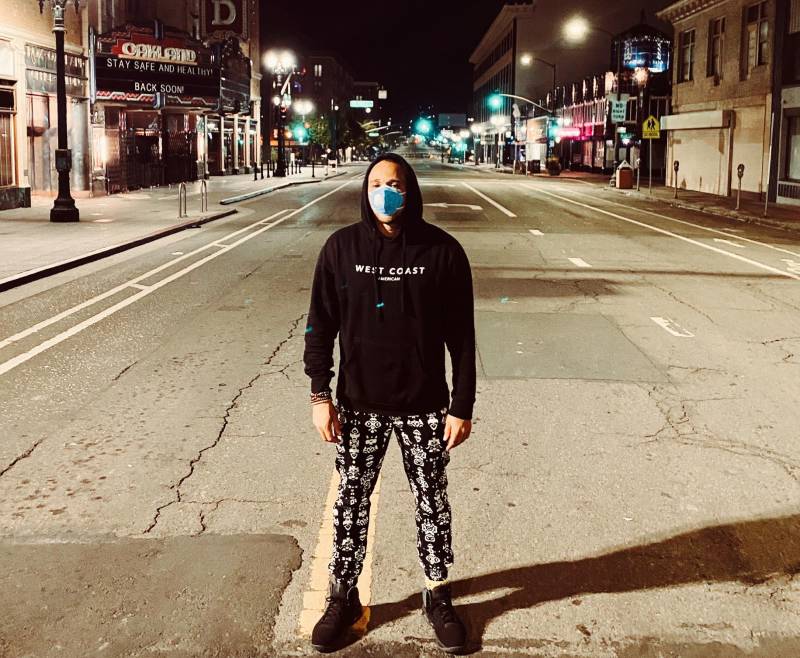“We had been talking about being resilient,” she says. “We share a spiritual perspective and a spiritual practice, so [we both believe in] the importance of saying out loud the power that we live with, the power that we are, comes from inside of us … even if the human part of ourselves isn’t quite sold on the idea.”
In the days that followed, Choice took his studio equipment home and quickly got to work on an album he envisions as a real-time dispatch from the COVID-19 pandemic. What started as a five-track EP grew into 12 songs that feature over two dozen collaborators—jazz musicians, rappers and producers, all recording remotely in their home studios.
Enveloped in the warm tones of live jazz, funk and soul instrumentation, the nuanced hip-hop project gives voice to anger at government inaction, grief for loss of life and frustrations at adapting to a stifling new normal. Yet an uplifting message floats through Social Distancing, carried by Choice’s buoyant rapping and piano playing. He doesn’t offer a false sense of hope, but rather a realist perspective ultimately grounded in his faith in the strength of the human spirit.
“Growing up in Oakland, we’ve had adversity from so many different angles. We’re ready for whatever fight we have to get into whether that’s oppression, poverty or a disease,” Choice says. “You have to have optimism in those situations when you’re fighting something that seems impossible to overcome.”
A classically trained pianist immersed in many of the Bay Area’s different live music scenes, Choice has omnivorous tastes. Social Distancing puts his jazz band Black London in dialogue with rapper-activist Mistah F.A.B., Lalin St. Juste of indie pop bad The Seshen, Karega Bailey from Sol Development and rising producer and bassist Drew Banga, among many others. Together, they take stock of the foreign emotional landscape all of us are now navigating as the world slows its pace, and we are asked to hold the paradox of retreating into the stillness of our homes (if we’re lucky enough to have them) while an invisible chaos looms outside.
“What we thought was important is not important—the likes, the money or the jewelry, none of that is important, all of them are disposable,” says Mistah F.A.B. His verse on the gospel-tinged “Silver Lining” flows with gratitude for quality conversations with his daughter and more time to perfect his crafts. “What’s really important is family, love and peaceful vibes, establishing a peace of mind. If you can master peace then you can create a masterpiece.”


